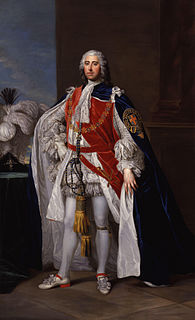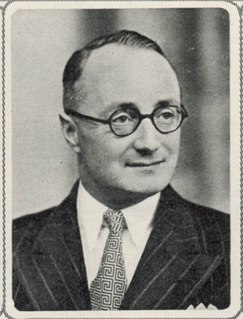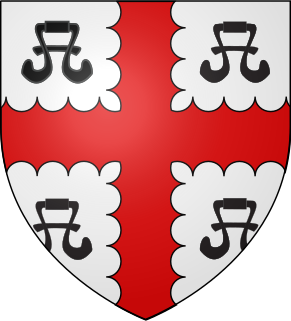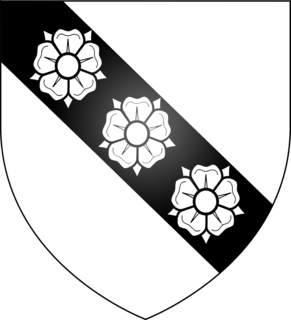Related Research Articles

The Lord Steward or Lord Steward of the Household is an official of the Royal Household in England. He is always a peer. Until 1924, he was always a member of the Government. Until 1782, the office was one of considerable political importance and carried Cabinet rank.
The Comptroller of the Household is an ancient position in the British royal household, nominally the second-ranking member of the Lord Steward's department after the Treasurer of the Household. The Comptroller was an ex officio member of the Board of Green Cloth, until that body was abolished in the reform of the local government licensing in 2004. In recent times, a senior government whip has invariably occupied the office. On state occasions the Comptroller carries a white staff of office, as often seen in portraits.

Walter Hungerford, 1st Baron Hungerford was an English knight and landowner, from 1400 to 1414 a Member of the House of Commons, of which he became Speaker, then was an Admiral and peer.
Thomas Chaucer was an English courtier and politician. The son of the poet Geoffrey Chaucer and his wife Philippa Roet, Thomas was linked socially and by family to senior members of the English nobility, though he was himself a commoner. Elected fifteen times to the Parliament of England, he was Speaker of the House of Commons for five parliaments in the early 15th century.

John Tiptoft, 1st Baron Tiptoft was a Knight of the Shire for Huntingdonshire and Somerset, Speaker of the House of Commons, Treasurer of the Household, Chief Butler of England, Treasurer of the Exchequer and Seneschal of Landes and Aquitaine.

Sir John Tyrrell, lord of the manor of Heron in the parish of East Horndon, Essex, was an English noble who held various offices: Knight of the Shire for Essex, Speaker of the House of Commons, and Treasurer of the Royal Household.

The Cofferer of the Household was formerly an office in the English and British Royal Household. Next in rank to the Comptroller, the holder paid the wages of some of the servants above and below stairs, was a member of the Board of Green Cloth, and sat with the Lord Steward in the Court of the Verge. The cofferer was usually of political rank and always a member of the Privy Council.

The King's Wardrobe, together with the Chamber, made up the personal part of medieval English government known as the King's household. Originally the room where the king's clothes, armour, and treasure were stored, the term was expanded to describe both its contents and the department of clerks who ran it. Early in the reign of Henry III the Wardrobe emerged out of the fragmentation of the Curia Regis to become the chief administrative and accounting department of the Household. The Wardrobe received regular block grants from the Exchequer for much of its history; in addition, however, the wardrobe treasure of gold and jewels enabled the king to make secret and rapid payments to fund his diplomatic and military operations, and for a time, in the 13th-14th centuries, it eclipsed the Exchequer as the chief spending department of central government.

Victor John Collins, Baron Stonham OBE PC was a British Labour Party politician.

William Bourchier, 1st Count of Eu, was an English knight created by King Henry V 1st Count of Eu, in Normandy.
This is a list of Sheriffs of Norfolk and Suffolk. The Sheriff is the oldest secular office under the Crown and is appointed annually by the Crown. He was originally the principal law enforcement officer in the county and presided at the Assizes and other important county meetings. After 1576 there was a separate Sheriff of Norfolk and Sheriff of Suffolk.
Events from the 1410s in England.
Sir Robert Corbet was an English Member of Parliament (MP) and High Sheriff.

Sir Thomas Tuddenham was an influential Norfolk landowner, official and courtier. He served as Steward of the Duchy of Lancaster, and Keeper of the Great Wardrobe. During the Wars of the Roses he allied himself with the Lancastrian side, and after the Yorkist victory in 1461 was charged with treason and beheaded on Tower Hill on 23 February 1462.

Sir Robert Cary of Cockington, Devon, was twelve times Member of Parliament for Devon, in 1407, 1410, 1411, May 1413, April 1414, Mar. 1416, 1417, 1419, May 1421, 1422, 1425 and 1426. Much of his later life was devoted to regaining the many estates and other landholdings forfeited to the crown following his father's attainder in 1388. He was an esquire in the households of King Richard II (1377–1399) and of the latter's half-brother John Holland, 1st Duke of Exeter.
Henry Somer was a mediaeval English courtier and Member of Parliament who was Chancellor of the Exchequer. Somer's tenure as Chancellor occurred during the Great Bullion Famine and the beginning of the Great Slump in England.
Sir Roger Leche (1361-1416) was a medieval British courtier, Member of Parliament, and Lord High Treasurer.
John Waterton was an English landowner, administrator, courtier, diplomat, and politician who sat in the Parliament of England.
References
- 1 2 3 "SPENCER, John (d.1417), of Banham, Norf. and Burgate, Suff". History of Parliament Online. Retrieved 19 June 2016.